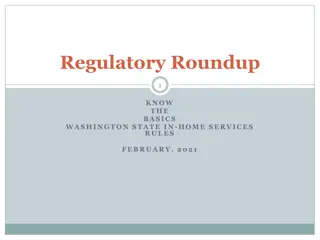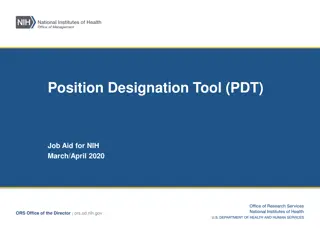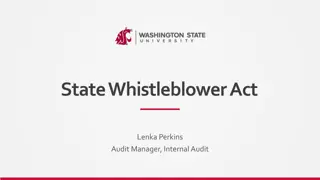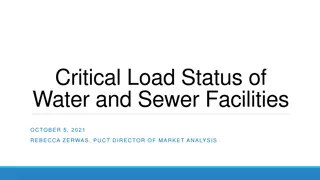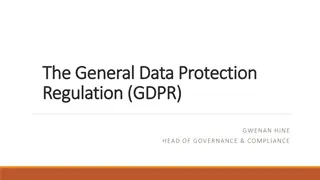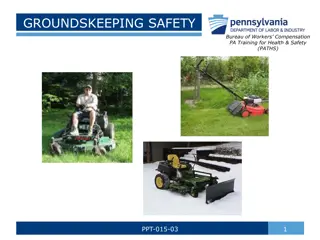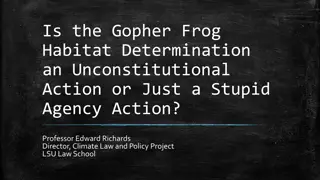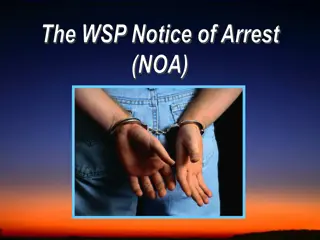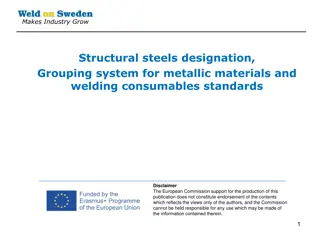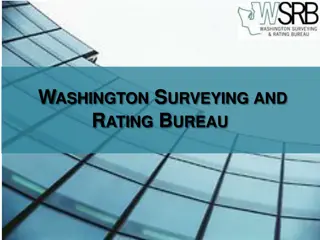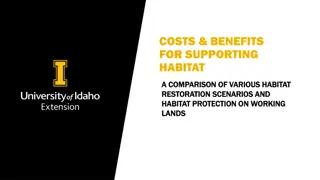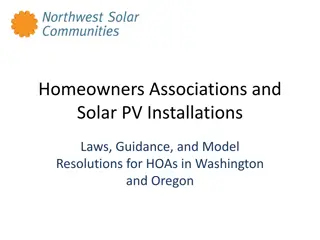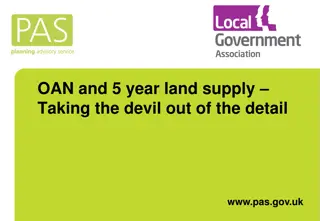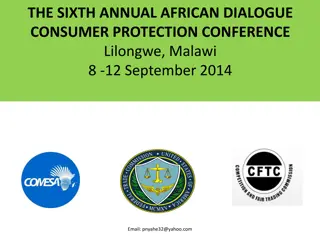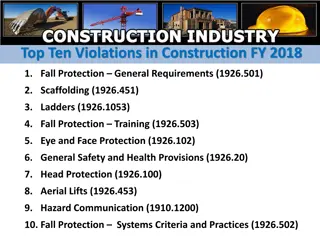Understanding Critical Areas in Washington State: Planning, Designation, and Protection
Critical areas in Washington State, including wetlands, aquifer recharge areas, fish and wildlife habitats, frequently flooded areas, and geologically hazardous areas, are defined and protected to safeguard important ecological functions and values. The designation and protection of these areas involve mapping, performance standards, regulations, buffers, and mitigation measures to ensure the preservation of essential natural resources and habitats.
Download Presentation

Please find below an Image/Link to download the presentation.
The content on the website is provided AS IS for your information and personal use only. It may not be sold, licensed, or shared on other websites without obtaining consent from the author. Download presentation by click this link. If you encounter any issues during the download, it is possible that the publisher has removed the file from their server.
E N D
Presentation Transcript
Critical Areas Updates Planning 101Training Washington State Association of Counties Scott Kuhta, AICP SENIOR PLANNER OCTOBER 26, 2023
What Are Critical Areas? RCW 36.70A.030 Definitions Wetlands Areas with a critical recharging effect on aquifers used for potable water (CARAs) Fish and Wildlife Habitat Conservation Areas Frequently Flooded Areas Geologically Hazardous Areas 2 WASHINGTON STATE DEPARTMENT OF COMMERCE
Wetlands Vernal Pool Bog Marsh 3 WASHINGTON STATE DEPARTMENT OF COMMERCE
Critical Aquifer Recharge Areas 4 WASHINGTON STATE DEPARTMENT OF COMMERCE
Fish and Wildlife Habitat Areas 5 WASHINGTON STATE DEPARTMENT OF COMMERCE
Frequently Flooded Areas 6 WASHINGTON STATE DEPARTMENT OF COMMERCE
Geologically Hazardous Areas Lahar Oso Slide 7 WASHINGTON STATE DEPARTMENT OF COMMERCE
Designate and Protect Designate Maps Performance Standards Protect Regulations Buffers Mitigation 8 WASHINGTON STATE DEPARTMENT OF COMMERCE
Designate - Maps WDFW Priority Habitat and Species 9 WASHINGTON STATE DEPARTMENT OF COMMERCE
Designate Performance Standards Geologically Hazardous Areas Slope angle Soil types Liquefaction Sea Level Rise 10 WASHINGTON STATE DEPARTMENT OF COMMERCE
Protect Regulations 11 WASHINGTON STATE DEPARTMENT OF COMMERCE
Functions and Values Must protect ALL critical areas functions and values Wetlands Functions Water purification Shoreline Stabilization Groundwater recharge and stream flow maintenance Flood protection Fish and wildlife habitat Economic benefits 12 WASHINGTON STATE DEPARTMENT OF COMMERCE
Best Available Science WAC 365-195 Counties and cities must include BAS when developing policies and regulations WAC 365-195 BAS Rule Recommend consulting agencies with expertise, including guidebooks and scientific studies https://ecology.wa.gov/water-shorelines/wetlands/tools- resources/best-available-science 13 WASHINGTON STATE DEPARTMENT OF COMMERCE
Monitoring and Adaptive Management Monitor regulations Are regulations consistently being applied to development? Are critical areas being protected? Is mitigation working? Adaptive Management If the answers are no above, what changes need to be made? 14 WASHINGTON STATE DEPARTMENT OF COMMERCE
CAO - Periodic Update Requirement RCW 36.70A.130 (1) (a) a county or city shall take legislative action to review and, if needed, revise its comprehensive land use plan and development regulations. (b) Except as otherwise provided, a county or city not planning under RCW 36.70A.040 shall take action to review and, if needed, revise its policies and development regulations regarding critical areas (c) The review and evaluation required by this subsection shall include, but is not limited to, consideration of critical area ordinances... 15 WASHINGTON STATE DEPARTMENT OF COMMERCE
Eligibility for Grants and Loans RCW 36.70A.130 (7) (b) A county or city that is fewer than twelve months out of compliance with the schedules in this section for development regulations that protect critical areas is making substantial progress towards compliance. Only those counties and cities in compliance with the schedules in this section may receive preference for grants or loans subject to the provisions of RCW 43.17.250. 16 WASHINGTON STATE DEPARTMENT OF COMMERCE
Recommended Update Process Do not wait to get started!! Conduct Best Available Science (BAS) Review Use critical areas checklists Reach out to state agency staff early in process 17 WASHINGTON STATE DEPARTMENT OF COMMERCE
RCWs RCW 36.70A.050 Guidelines to classify critical areas RCW 36.70A.060 Natural Resource Lands and critical areas Development Regulations RCW 36.70A.170 Natural Resource Lands and critical areas Designation RCW 36.70A.172 Critical Areas Best Available Science RCW 36.70A.175 Wetlands to be delineated in accordance with manual RCW 36.70A.700 Voluntary Stewardship Program 18 WASHINGTON STATE DEPARTMENT OF COMMERCE
WACs WAC 365-190 Minimum Guidelines to Classify Agriculture, Forest, Mineral Lands and Critical Areas WAC 365-195 Best Available Science WAC 365-196 Procedural Criteria for Adopting Comprehensive Plans and Development Regulations WAC 365-196-485 Critical Areas WAC 365-196-580 - Integration with the Shoreline Management Act WAC 365-196-830 Protection of Critical Areas WAC 365-196-832 Voluntary Stewardship Program 19 WASHINGTON STATE DEPARTMENT OF COMMERCE
Critical Areas Resources Contact Regional GMS Planner Critical Areas Handbook Updated Chapter 7: Monitoring and Adaptive Management Critical Areas Checklist WDFW CAO Checklist Sound Choices Checklist Commerce Periodic Update Webpage Commerce Critical Areas Webpage 20 WASHINGTON STATE DEPARTMENT OF COMMERCE
Thank you www.commerce.wa.gov Scott Kuhta SENIOR PLANNER Scott.kuhta@commerce.wa.gov 509-795-6884


